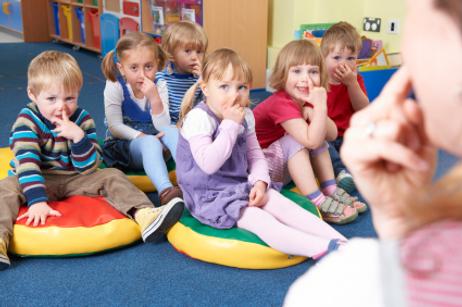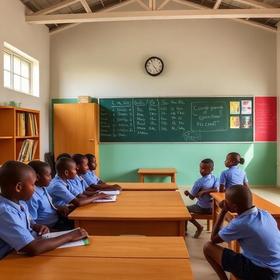Three early childhood education approaches enjoy great popularity in the United States and indeed throughout the world. They all had their origins in the teaching of European society's poorest, most disadvantaged children. To understand the changes which Dr. Maria Montessori, Rudolf Steiner, and Reggio Emilia founder, Loris Malaguzzi, wrought on the European educational system back at the beginning of the 20th century, we need to know how children were educated at that time. The prevailing methodology used drills and memorization. Children's minds were considered to be small versions of adult minds which needed to be expanded with knowledge. Rather than letting children explore and discover on their own, as we all know they are quite capable of doing, teachers filled their minds full of facts. Retention was achieved by drills and memorization. Teaching a child how to think was an ancillary objective if indeed it was an objective at all. Furthermore, most children finished their classroom instruction at age 10 or 11.
Montessori, Steiner, and Malaguzzi believed in the intrinsic abilities and capabilities of children. Their approaches, philosophies, and methods had a single, common purpose: to produce a better society in which human beings would respect each other and live in harmony and peace.
In America, these three educational approaches took root not in the poorest segments of society but in a middle and upper class eager to have something better than what was offered in the public school systems. Here is a comparison of the main features of the three methods.
| Montessori | Waldorf | Reggio Emilia | |
|---|---|---|---|
| Founder | Dr. Maria Montessori (1870-1952) | Rudolf Steiner (1861-1925) | Loris Malaguzzi (1920-1994) |
| Philosophy | Education of the whole child | Education of the whole child | Education of the whole child |
| Spirituality | Religious even mystical | Anthroposophy | Spiritually aware. |
| Classroom Materials | Prepared by teacher | Prepared by students | Prepared by teacher |
| Teaching Style | Teacher guides. Different teacher for each multiage class. | Teacher directs. Teacher stays with class throughout primary years | Teacher collaborates. Teacher stays with class for 3 years. |
| Learning Activities | Children work in groups according to their interests at various learning centers. | Children work as a class on activities designed to develop imagination and creativity. | Children work as a group on activities and project which interest them. |
| Music/Arts | Singing, dance, painting, sculpture | Eurythmy, painting, singing | Singing, dance, painting, sculpture |
| Management | Locally owned/operated. Frequently proprietary. | Locally owned/operated. Usually set up as a non-profit. | Locally owned/operated. Usually set up as a non-profit. |
| Parental Involvement | Occasional extracurricular | Occasional extracurricular | Daily involvement expected/required |
| Adherence to Methodology | Depends on school operator | Required | Some flexibility depending on local situation. |
| Certifications Required | Desirable but not required. | Required. | None. |
| Associations | American Montessori Society; Association Montessori Internationale | Association of Waldorf Schools of North America | North American Reggio Emilia Alliance |
| Quotations from the three Founders | “We must take into consideration that from birth the child has a power in him. We must not just see the child, but God in him. We must respect the laws of creation in him.” | “A healthy social life is found only, when in the mirror of each soul the whole community finds its reflection, and when in the whole community the virtue of each one is living.” | “Our task, regarding creativity, is to help children climb their own mountains, as high as possible. No one can do more. “ |
Questions? Contact us on Facebook. @privateschoolreview













